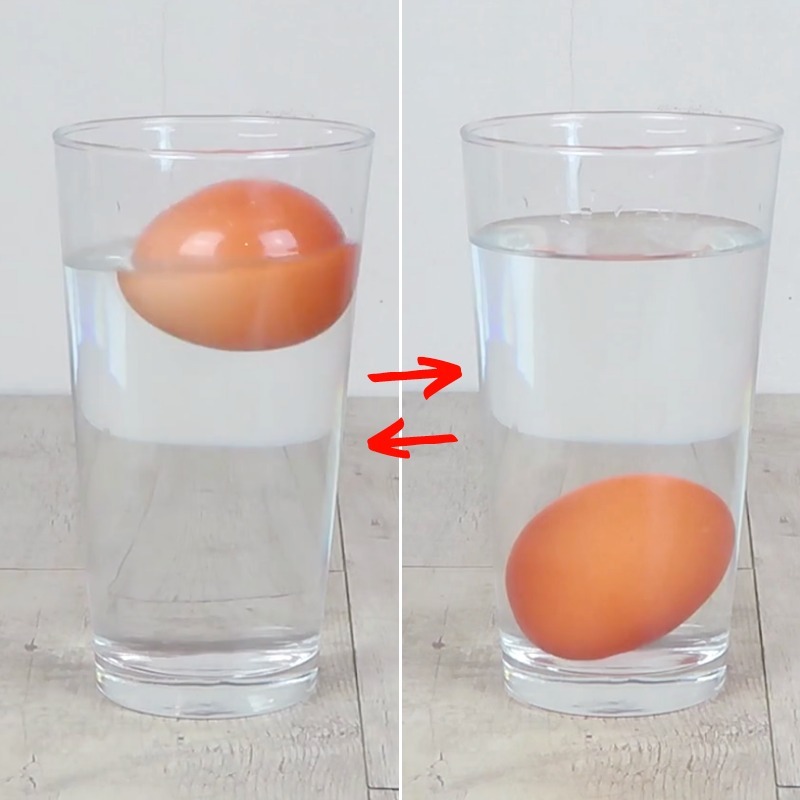ADVERTISEMENT
Do you know this trick? Here’s a quick and easy way to determine if an egg is fresh or expired: immerse it in a glass of water with salt. If it floats, the egg is expired; if it sinks to the bottom, it’s fresh!
Why This Works
The floating test works due to the changes in the egg’s internal structure over time. As eggs age, air enters through the porous shell, creating a larger air cell. This increased buoyancy causes older eggs to float, while fresher eggs remain submerged.
Additional Freshness Tests
see continuation on next page
ADVERTISEMENT
ADVERTISEMENT
Additional Freshness Tests
While the water test is effective, here are a few more methods to check egg freshness:
Shake Test: Hold the egg close to your ear and shake it gently. If you hear a sloshing sound, it may be old. Fresh eggs have a firmer interior.
Visual Inspection: Crack the egg open on a flat surface. Fresh eggs have a bright, rounded yolk and thick, cloudy egg whites. If the yolk is flat and the whites are runny, the egg may be past its prime.
Smell Test: If you crack an egg and it has a strong, unpleasant odor, it’s best to discard it.
Storage Tips
To maximize freshness, store eggs in their original carton in the coldest part of the refrigerator, not in the door. This helps maintain a consistent temperature and prevents moisture loss.
By using these methods, you can easily determine the freshness of your eggs and ensure you’re cooking with the best quality!
ADVERTISEMENT
ADVERTISEMENT
